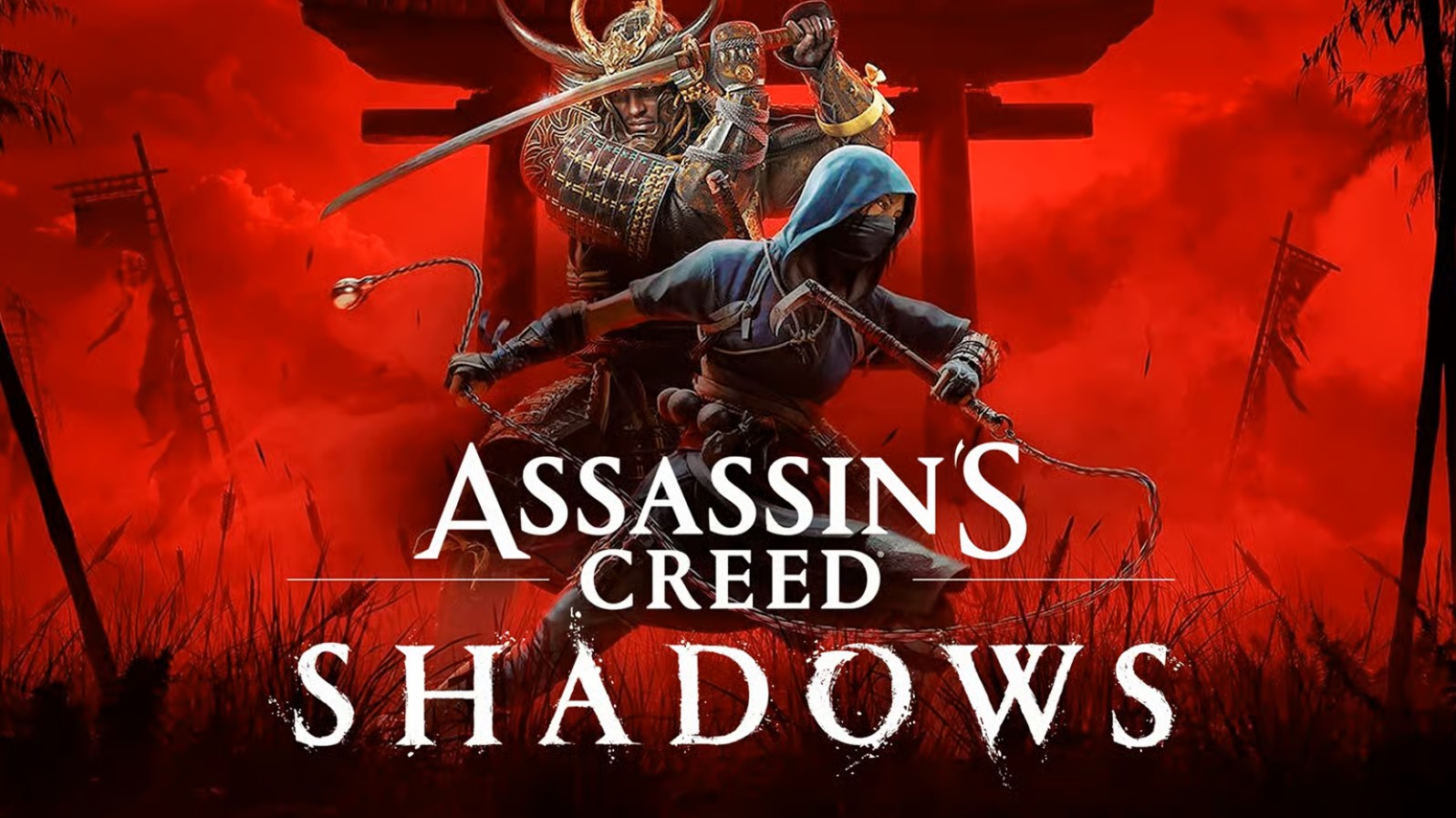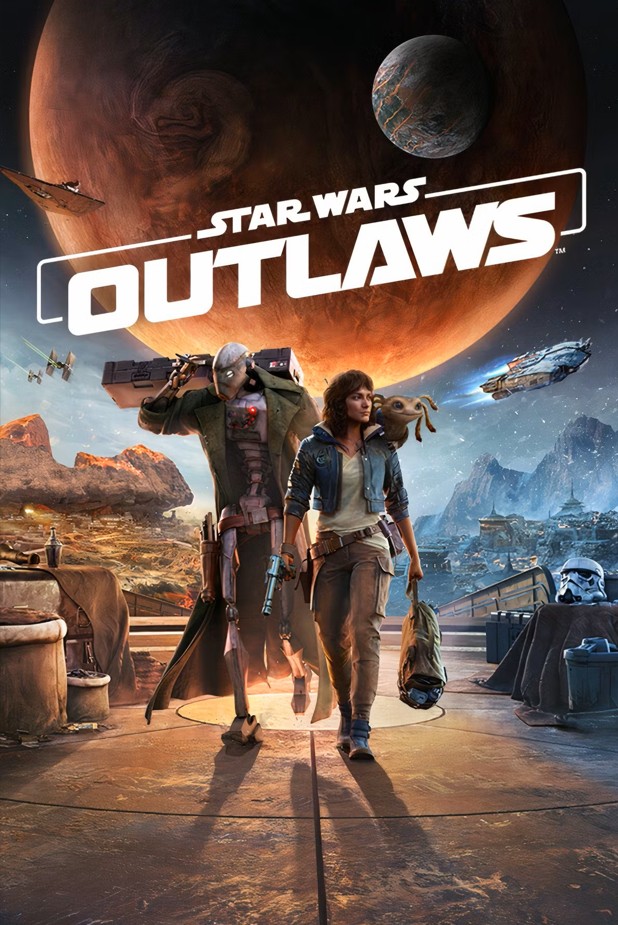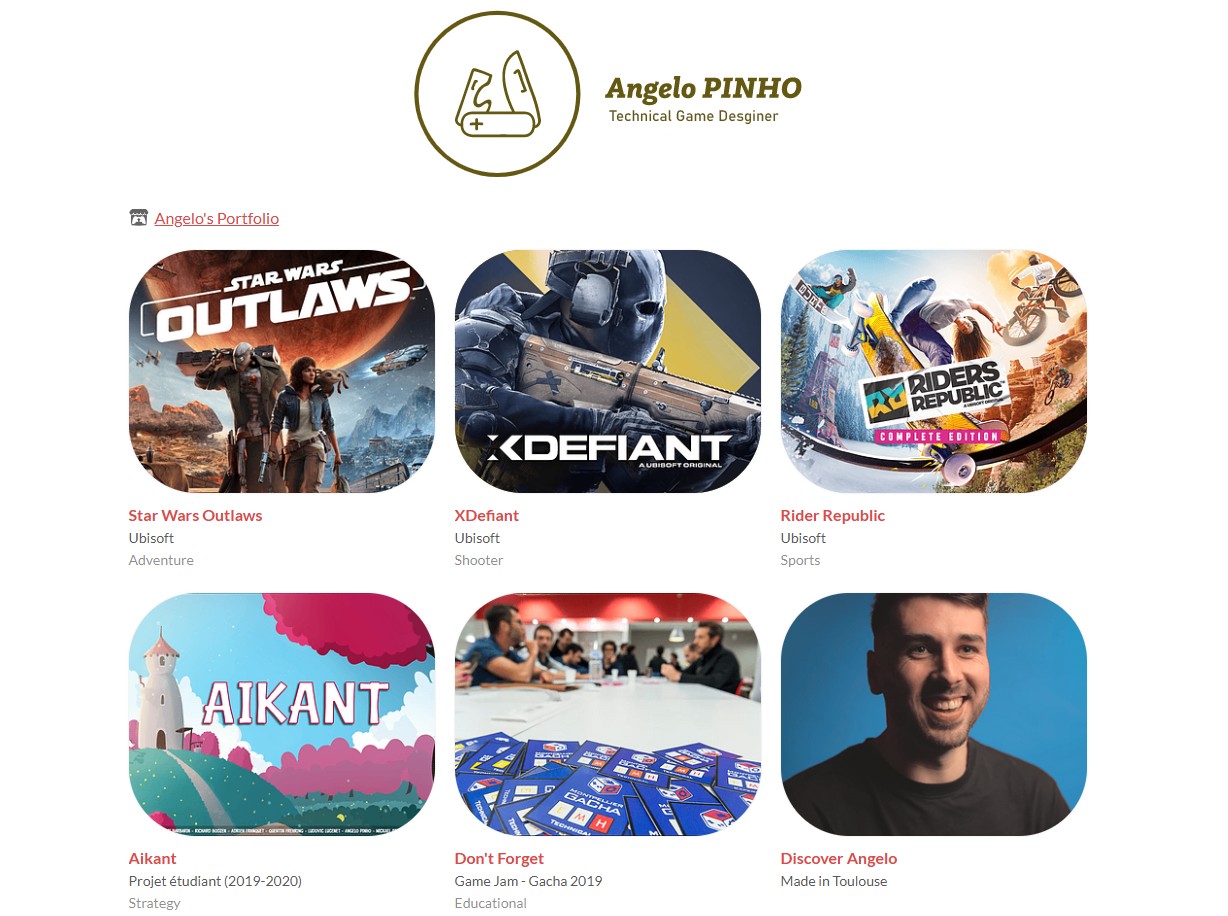“I started on a job that doesn’t exist”.
As soon as he graduated from ESMA, Angelo landed a work placement at Ubisoft’s Annecy studios as a Mission Integrator. It was a job that didn’t exist”, he explains, “but which met a specific need on Riders Republic.
“The aim of our job was to connect all the game’s mission systems so that they were functional (UI, level design, win/loss conditions, etc.). Before we arrived, all the components of the races and missions were spread around the 3D environment, without any connection. In other words, our mission was to make the game’s missions work, when it came out.”


As part of this internship, you’ll be working with a number of people involved in the production of the game, both on the technical aspects and on the quality of the missions, levels and scoring system.
After completing his work placement and a fixed-term contract as a Junior Tech Level Designer, still at Riders Republic, this experience led him to a position he didn’t even know existed: Technical Game Designer.
“It’s a job that requires technical knowledge of programming, but also includes a whole design aspect – a dual role that suited me perfectly!
Since then, Angelo has held this position on several major projects for Ubisoft Annecy(XDefiant, Star Wars: Outlaws), before moving to Bordeaux, where he is currently working (still for Ubisoft) on Assassin’s Creed Shadows.
“Today,” he stresses, “I’m proud of all the projects I’ve worked on. They all contain a part of me; I was able to put my seed into each one of them.”

His career choice? Love at first sight and a happy coincidence
“I’ve always been a big gamer from a very young age, but to be honest, I discovered that you could work in this industry very late in life.” It was by chance, more specifically through a friend he bumped into on a transport journey, that Angelo first heard about this career opportunity. Intrigued, he followed his friend to ESMA’s open house, and came away transformed. “Once I was there, I was blown away by the school and the fire that burned in the eyes of the teaching staff. There was no doubt in my mind that this was where I was going to spend my next few years.
From his four years of training, he retains a real human experience, combined with the acquisition of a unique range of skills. A skillset that is both technical and human, which he developed through his course but also through the many group projects that left a lasting impression on the former student.
A daily routine of prototyping, debugging, meetings and ping pong
What does the day-to-day work of a Technical Game Designer involve?
At Ubisoft, it’s a multi-faceted role that ranges fromdeveloping gameplay prototypes to debugging “deep problems that people don’t understand”, including designing new tools, keeping a technological watch on existing tools and game engines, and numerous meetings with the Game Design teams.
Sometimes to evoke needs, sometimes to explain the technical impossibility of implementing certain ideas.
And from time to time, take the time to relax with a few jokes and a session of table tennis. Another way of strengthening ties and developing human contact, so to speak.

To navigate a live sector, you need to find the right crew
The video games industry, it should be remembered, is going through an unprecedented crisis marked by stagnating growth, rising production costs and a wave of redundancies in the major studios. “We feel that the AAA industry is losing credibility, to the benefit of the big independents who are proving that you can make a good game without having a blockbuster budget. I think it’s a large-scale transformation of the sector, our consumers no longer consume in the same way, nor the same games, and it’s up to the sector to adapt. “
What does this mean on a day-to-day basis? “I’d say there’s a lot of pressure to ensure the financial success of our games, which is reflected in the production schedule. That means overtime, constant discussions and last-minute decisions taken under pressure, as well as repeated tests on the game as it stands. “Historically, the release of a video game is always a pivotal moment, but the importance of these moments for the survival of a studio has never been greater.”
That said, Angelo Pinho Dos Santos tempers: “The whole entertainment industry seems to be changing, and the video game industry remains at the heart of this transformation. In France, we are very lucky because we have job security, which is not the case in all countries. If our company or project goes under, there’s a lot of support to help us bounce back.
How do you (sur)live in this changing ecosystem, and how do you fit in? “What makes the difference in our industry today is human qualities. We know that game production is a sea of problems and solutions, but the most important thing is to have a crew you can rely on, with whom you can communicate objectively, and in whom you can have confidence. If you give a good project to a shaky team, it won’t do any good. Givea bad project to a close-knit team, and they’ll turn it into a great product.”
Excellent training to prepare you for the specificities of the profession
For Angelo Pinho Dos Santos, it’s impossible to be totally ready to enter the video games industry before you’re in it. “Having said that, the training courses are getting better and better, and the young people coming out of them more and more talented. Although some of our jobs are based on experience, and what we’ve learned on the job, I think young people are coming out of school sufficiently prepared.”
In his view, this improvement in the quality of training owes a great deal to the increasingly frequent links between studios and schools. The former can offer a wealth of advice and feedback that teaching staff can draw on to deliver an apprenticeship programme that is best suited to the realities of the sector, while the latter can be at the forefront of the search for tomorrow’s talent. It’s a win-win partnership that schools have every interest in exploiting to the full.
“At Ubisoft, we use proprietary game engines (which were designed by our teams), namely Snowdrop and Anvil. These game engines are not accessible outside the company, so we can’t train upstream. Fortunately, our training at ESMA had prepared us for this eventuality, so we had all the keys in hand to adapt quickly.”
Since leaving school, Angelo has gone from Anvil to Snowdrop, then to the ‘new’ Anvil, an engine that he has had to relearn, hence the importance of being able to put into practice the flexibility developed during his video games training. “My reality is that I have to continually adapt to changing technology and new tools, while at the same time being able to create the tools of tomorrow.”
An independent and French future
In the near future, Angelo Pinho Dos Santos plans to continue his career in France, in a dynamic sector that is at the heart of the action on the ground, trying to innovate in the creation of gameplay mechanics. “At the moment, we see a lot of big independents (the triple i’s) coming out with successful projects. I think this part of the industry is going to become the majority, and come up with ever more innovative projects. France has a worldwide reputation for creating video games.
Firstly via Ubisoft and more recently by Sandfall Interactive(Clair Obscur: Expédition 33), but also by Arkane(Dishonored, Deathloop, Marvel’s Blade), Asobo(The Crew, A Plague Tale), Ankama(Dofus), and many others”. An ecosystem that is able to flourish thanks to the availability of a wide range of financial resources (CNC, regional grants, etc.) that are now making it possible to launch studios and game productions. “Every year, French nuggets make our country shine internationally, and attract more and more talent.”
What advice do you have for the younger generation and those who are training them today?
“The best advice I can give you is to love what you do,” concludes Angelo Pinho Dos Santos. “Our jobs require too much passion and too much of us, and we have to be in tune with that. Don’t forget that what sets you apart are your life experiences and your emotions. Let the players feel them in your games.
As for the schools, he insists: “Continue to get closer to the studios, and to surround yourselves with industry professionals to improve your curricula. These are very good initiatives. The more the studios and schools communicate, the more the industry progresses.
To find out more about Angelo Pinho Dos Santos’ career, take a look at his portfolio here :

